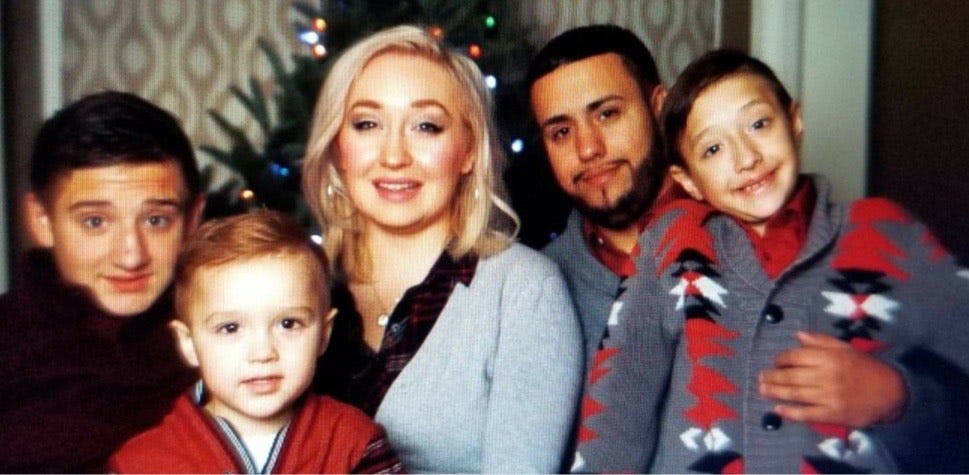Just $47: that’s the amount of money that is preventing Katrina Olguin from being able to enroll her kids in the Wisconsin Parental Choice Program (WPCP). “We were just $47 over and I did everything to adjust it legally. And then they were just like, no, sorry,” she said.
Olguin has three sons who will be in grades K-5, fourth and ninth in the fall, and she would like them all to attend Heritage Christian Schools, a high-performing school her two older sons attend. It’s also where Katrina is a teacher. The Olguin’s fourth grade son is already in the WPCP because parents can apply at three different windows, K-5, first and ninth grades and Olguin enrolled him when he was going into first grade. Their financial situation was very difficult then.
“Five years ago my husband almost cut his hand off at work, so for the past five years we’ve always been in a situation where we are below income,” Olguin said.

But in 2019, her husband got a new job, which brought their income closer to the WPCP threshold. This won’t affect her fourth grade son’s status in the WPCP, because once a child is accepted into the program they can stay in it regardless of income changes. But for her youngest and oldest, this could determine whether they can financially afford to attend Heritage Christian altogether.
“For my family it is so important for my kids to be in this program,” she said. “It would be really difficult if we didn’t qualify, because yes, we are close to this income level but for the first year ever our income actually went up.”
Applications for the WPCP opened in February and according to Olguin, “We applied the first day we could, because that’s how important this program is to us.” But unfortunately, she had filed her 2019 taxes two days before, so the state relied on that return instead of her 2018 status, which put them just $47 over the income threshold. The income threshold is 220% of the federal poverty level, somewhere around $66,000 for a family of five. It immediately said on her screen that her youngest and oldest sons were declined from the WPCP.
“I cried for two days because financially it is going to be a humongous hit to us,” Olguin said. “And it’s even more sad that it’s two of my kids.”
Rejected by such a small margin, Olguin figured there had to be a way for her to adjust things and reapply. After all, she had become familiar with government programs during her husband’s disability period. “With any other government program they do anything they can do to get you help. For some reason, with this program it’s like they shut that off,” she said.
Olguin immediately amended her taxes to make a legal contribution to her IRA account in order to get below the income threshold, and then reapplied to the program. However, Wisconsin’s Department of Public Instruction (DPI) would not consider the new application and recited a rule saying each applicant gets only one shot at applying during the enrollment period.
Heritage Christian Schools also tried to appeal the application, as DPI legally allows schools to make an appeal. But DPI still would not consider the application.
The Wisconsin Institute for Law & Liberty is suing DPI on behalf of Olguin, Heritage Christian Schools and School Choice Wisconsin Action because DPI’s ‘one-and-done’ application policy is an illegal rule created by DPI and not written in statute. In order to promulgate a rule legally, an agency like DPI must work with the legislature to go through a formal rulemaking process. This ensures public notice and proper oversight.
“My whole purpose in this is that I don’t want any family to have to go through this big change, like take a kid out of school, because at that one moment when you applied you didn’t have your financial paperwork together,” Olguin said.
Wisconsin’s school choice programs provide access to some of the best schools in the state. But too often, DPI erects barriers to families, like the Olguins, trying to access the choice programs. They work against them, not with them. This has to change.
Cori Petersen is a writer and research analyst at the Wisconsin Institute for Law & Liberty.


